9 dishes from around the world that are buried in the ground before being eaten
Categories: Food and Drinks
By Pictolic https://pictolic.com/article/9-dishes-from-around-the-world-that-are-buried-in-the-ground-before-being-eaten.htmlThe cuisine of different countries of the world can surprise, shock and even shock. In our review, we have collected the most interesting delicacies, the cooking process of which involves burying them in the ground. This is necessary in order for the dish to pass the full fermentation cycle. The result is something that is not always edible, but many people really like it…
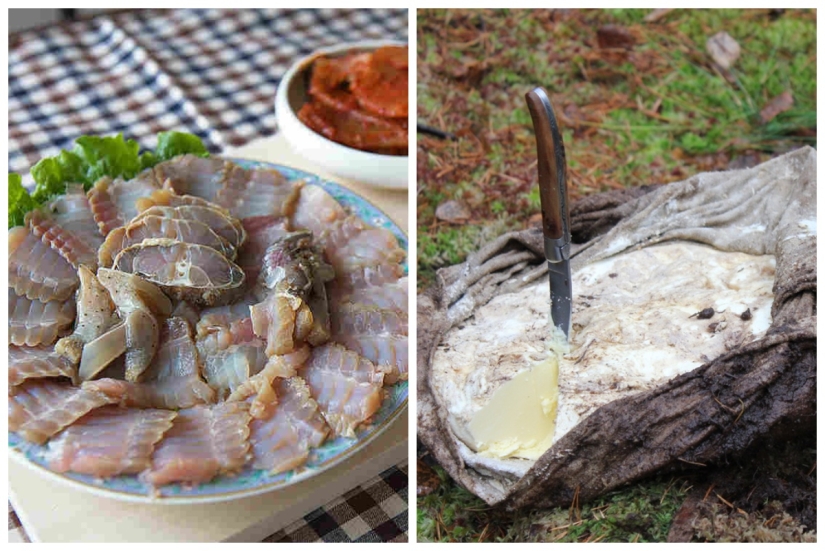
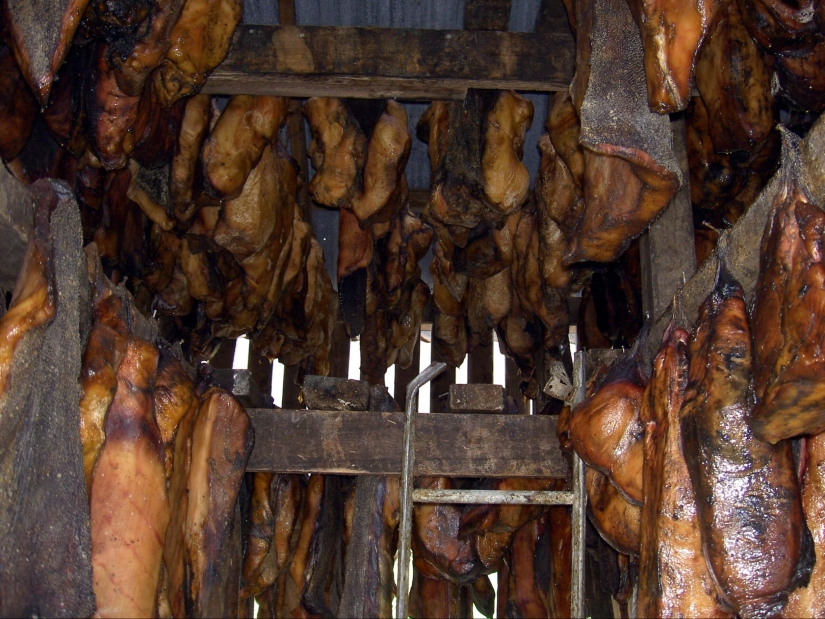
This dish is created for real Vikings, because an unprepared person will definitely not want to eat it. Haukarl is made from the meat of the Greenland giant shark. In raw or, for example, fried form, it is poisonous, because it is oversaturated with uric acid. Therefore, the Icelanders came up with a completely crazy way to prepare it: the shark carcass is buried in the ground, waiting for it to decompose, then taken out and hung out in the sun, where the meat reaches another 4 months. Dinner is served!
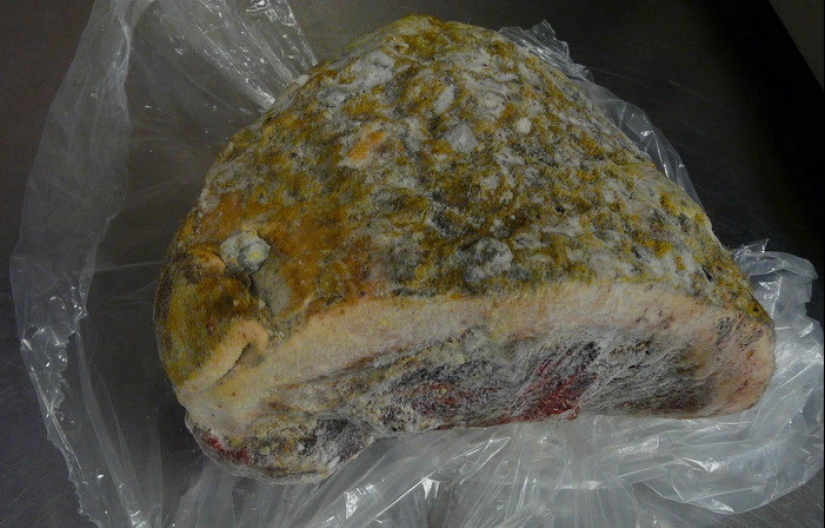
Kopalchen is a real delicacy from the Eskimos. The dish is made from the meat of an old and strong male deer. The animal is previously kept on starvation rations to clear its stomach, after which it is strangled and placed in a swamp, sprinkled with peat. A few months later, when the carcass has already decomposed, it is dug up and immediately served to the table. Eskimos are used to this, but in an unprepared person, rotten meat will cause not only nausea,but also severe poisoning, which can end in death.
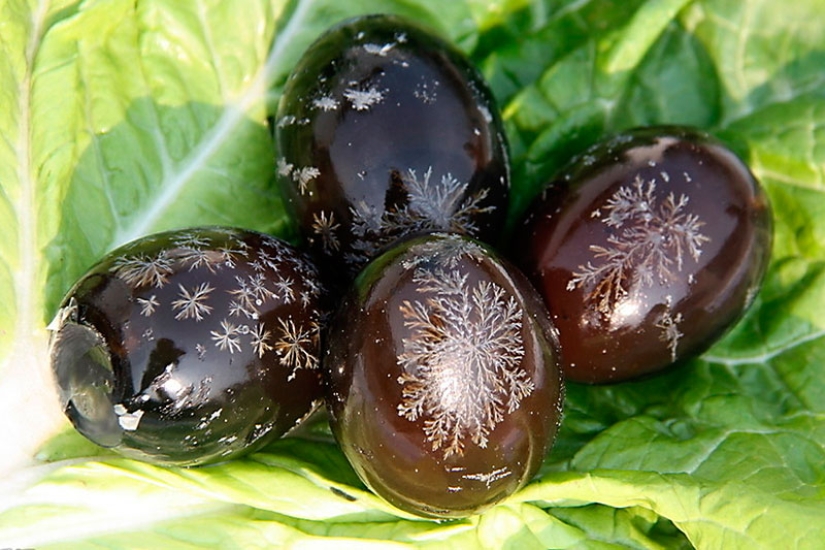
But this delicacy comes from China. In this country, it is not just appreciated, but is considered a real decoration of the table. The dish is so named because of its appearance, but, in fact, it is ordinary rotten eggs preserved in ash. In order to prepare a delicacy, the Chinese take ordinary goose eggs, sprinkle them with salt, cover them with a mixture of tea, lime, salt, ash and clay, roll them in straw and hide them in the ground. There they lie for 15-20 days, until they acquire the desired consistency: the protein is dark brown and translucent, the yolk is dark and creamy, with a strong ammonia smell.
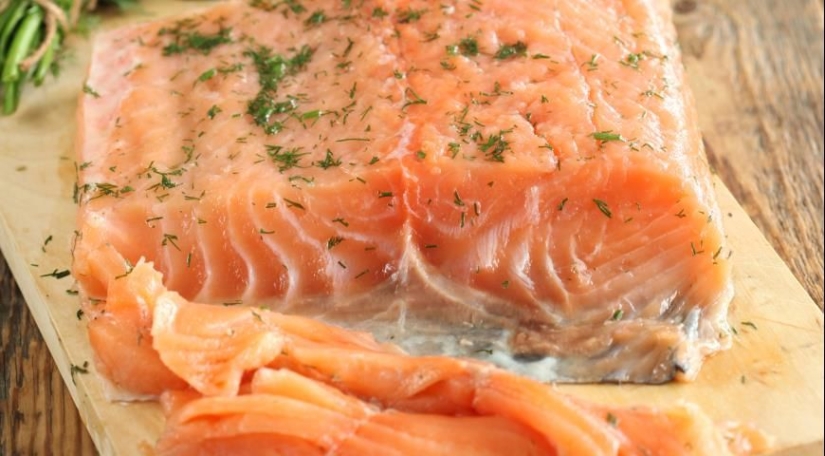
It means "buried salmon"in Swedish. Unlike the rotten shark, this dish tastes quite good. Fresh fish is sprinkled with salt and spices, then buried for several days in the ground. Then it is taken out and served to the table. The meat is tender, well salted and delicious. Despite the fact that this method is considered a relic of antiquity, such a dish can still be found in some villages of the Scandinavian countries.
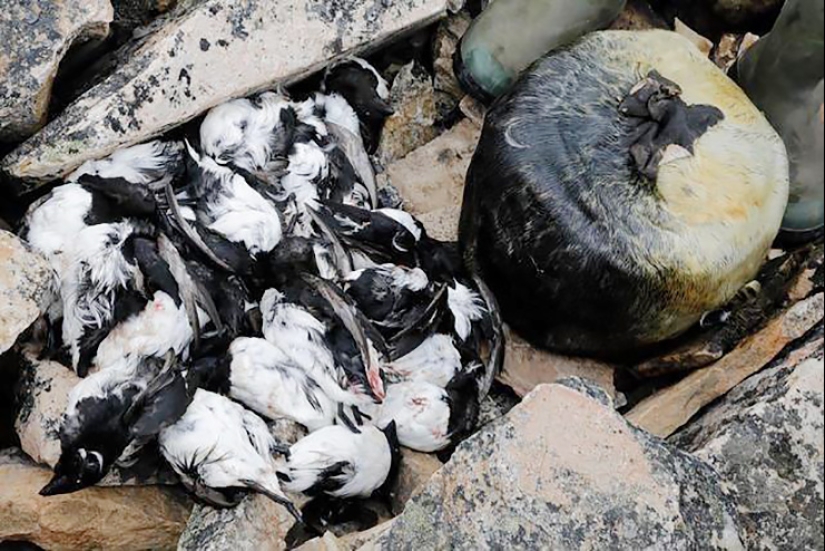
Kiwiak is a traditional winter food of the Inuit from Greenland, which consists of a variety of small birds fermented in seal skin. Usually, about 300-500 small carcasses are used for cooking, including beaks and feathers-they are placed in a seal and left in the ground for several months. Then the meat is dug out, cleaned and served to the table. Kiwifruit is especially popular at weddings and birthdays.
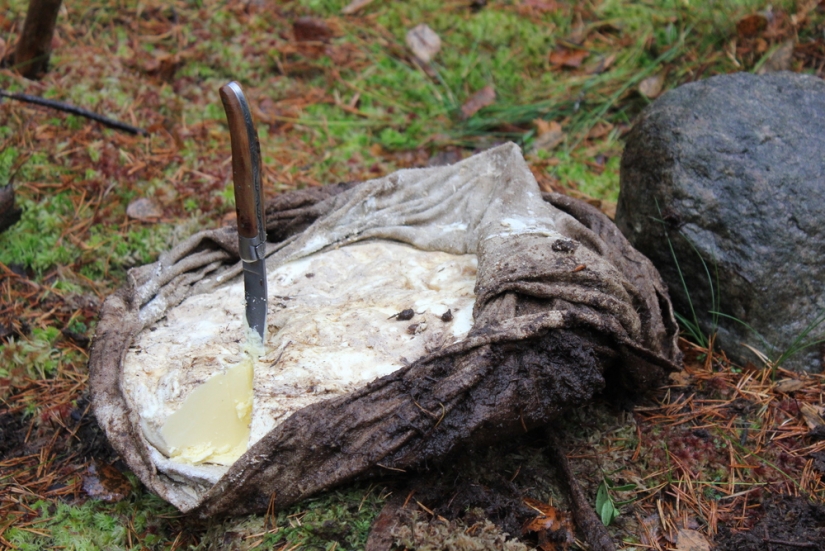
Marsh oil was prepared in Ireland and Scotland in areas with peat bogs. Residents buried wooden boxes with oil in the swamp, which they left for a very long time. Even now, such "caches" are still found in the UK. Peat protects the oil from the spread of bacteria, so you can safely eat it. It takes on the taste of dorblu and gives off quite a bit of the smell of mud and mold.
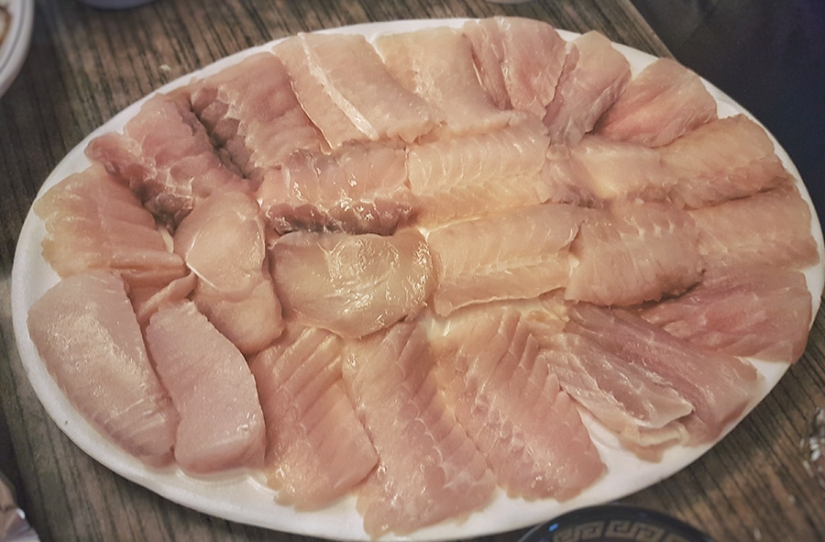
Stingrays, like bowhead sharks, lack kidneys and urinary tracts, so their waste products are released directly through the skin, making them unfit for food. But Asians are still inventors. Like the Scandinavians, they thought of burying stingrays in the ground. But if the harsh Vikings at least "aired" the carcass, then the meat is served immediately. Those who are unlucky enough to try it say that the smell of the dish is comparable to the smell of a public toilet in hot weather.
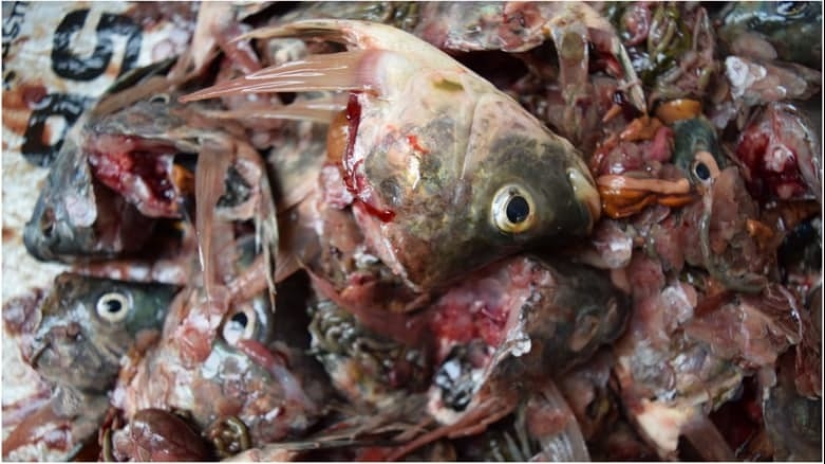
Tepa or " smelly heads» - a traditional Alaskan Eskimo dish. It is made from salmon heads, which are put in a wooden barrel (sometimes together with the entrails) and buried in the ground for several weeks. Unlike the previous versions, this is not a delicacy, but rather a tribute to tradition. Previously, such a dish was made, trying to use all the fish, so as not to throw food around.
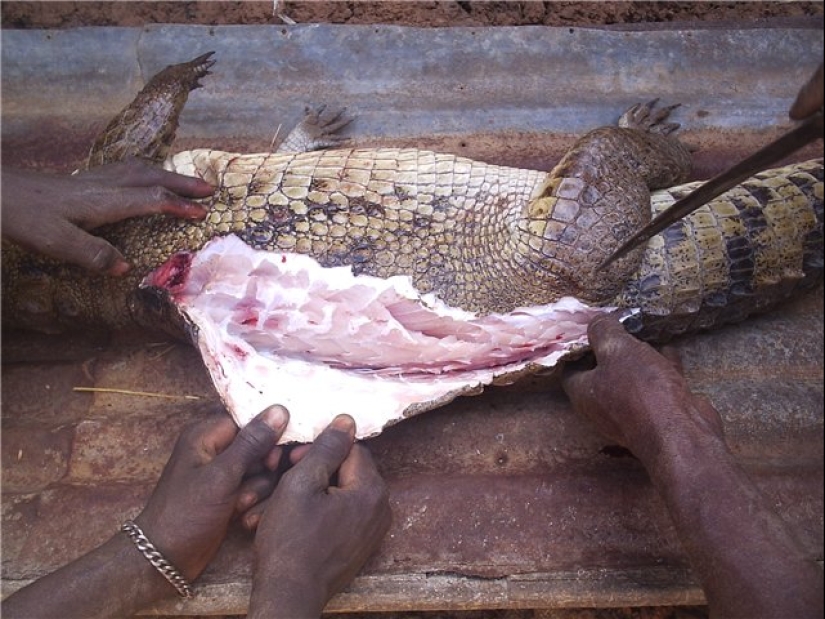
Finally, we kept a delicacy from Africa. Many who have managed to taste crocodile meat in stewed or fried form, say that it strongly smells of mud. So, the African tribes eat it rotten, burying the carcass in the sand for several weeks. There, the meat begins to decompose, become softer. The carcass is dug up and eaten by the entire tribe, with the first piece going to the chief and the second to the shaman.
Keywords: Dishes | Gourmet | Delicacy | Strange | Oddities
Post News ArticleRecent articles

It's high time to admit that this whole hipster idea has gone too far. The concept has become so popular that even restaurants have ...

There is a perception that people only use 10% of their brain potential. But the heroes of our review, apparently, found a way to ...
Related articles

If you are against killing animals, but are not ready to give up meat and are not too squeamish, then a new food trend gaining ...

We live in a society that even in the 21st century willing to believe in omens and superstitions. Among them are quite stupid, for ...

Looks can be deceiving not only in humans, but some items, the real purpose of which is failing. At first glance, this fragrant ...

New Year's is a time to surprise and delight loved ones not only with gifts but also with a unique presentation of the holiday ...